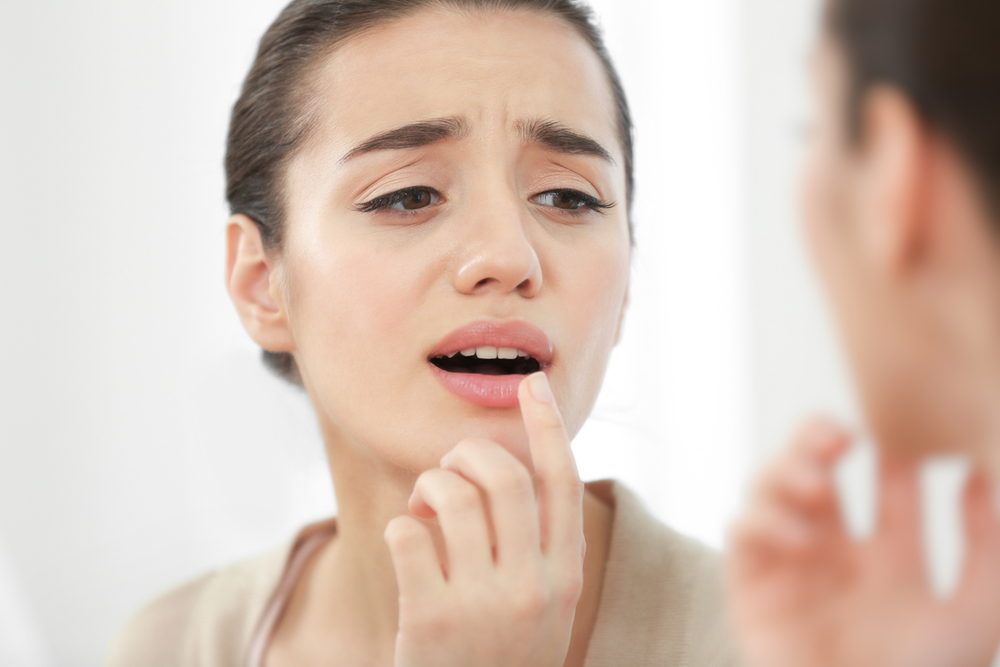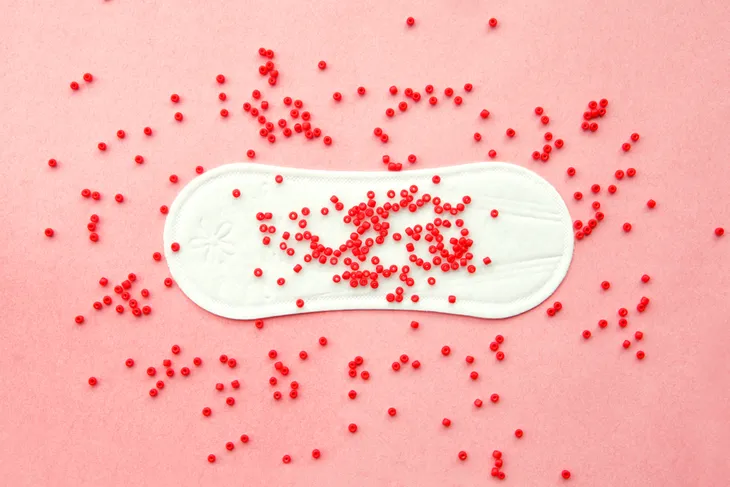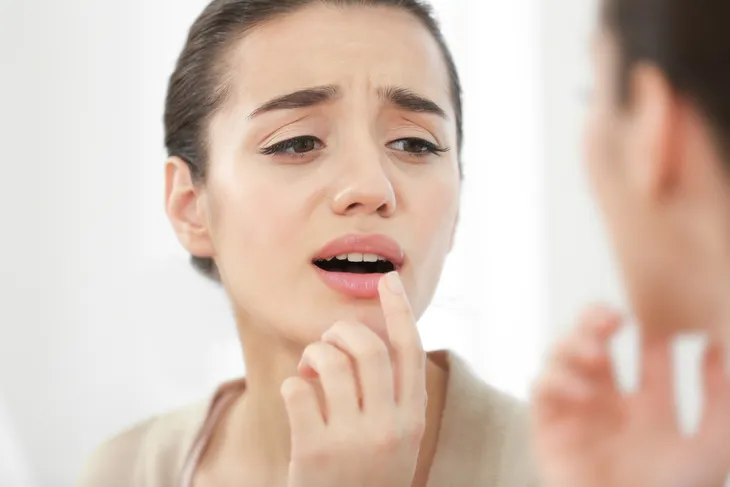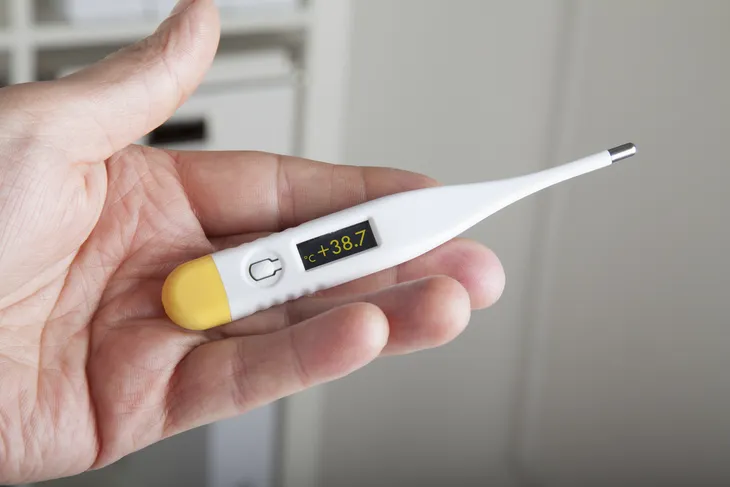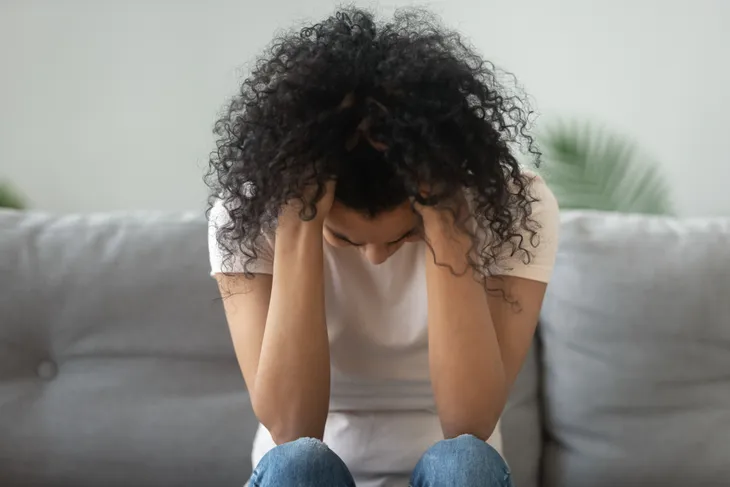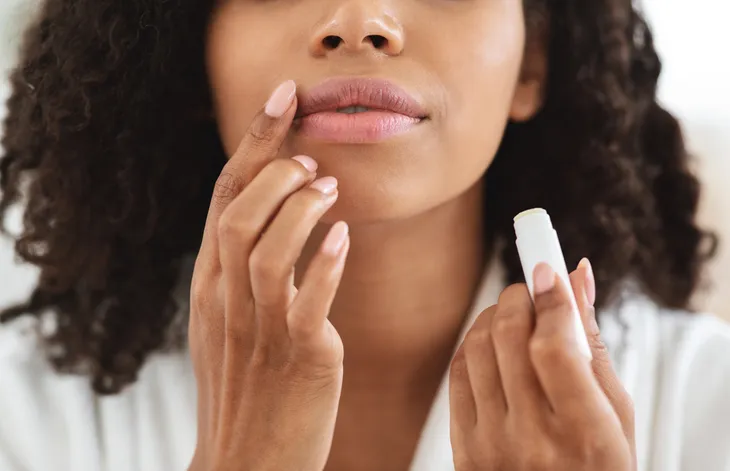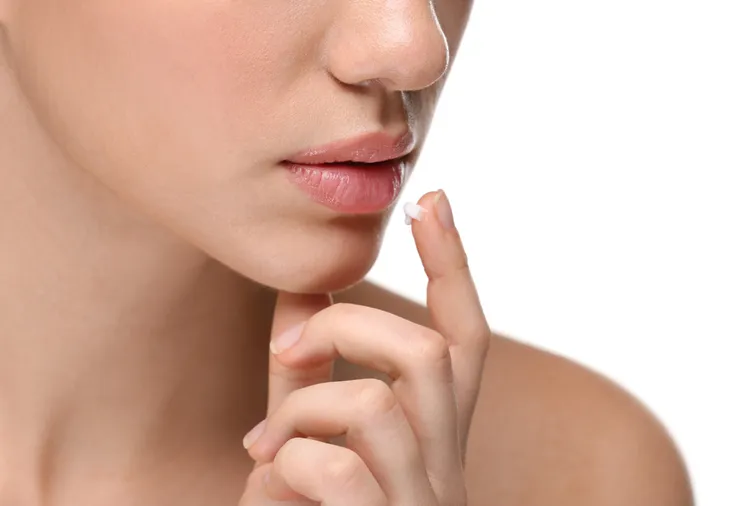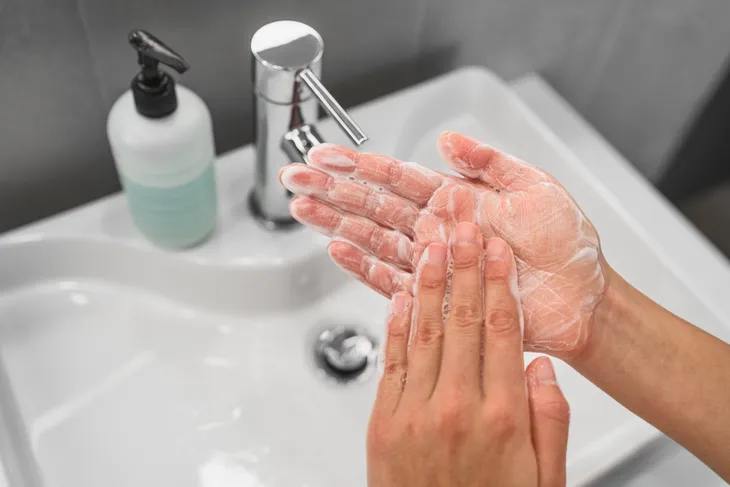- Cold sores, also known as fever blisters, are caused by certain strains of the herpes simplex virus (usually HSV-1).
- The virus can lie dormant until something triggers it to wake up, causing a cold-sore outbreak.
- The best way to stop a cold sore in its tracks or speed up the healing process is to attack it before it’s even seen. This can be done by knowing your triggers and having the right remedies on hand.
If you get cold sores (or fever blisters) you have the herpes simplex virus (usually HSV type 1, but it could also be HVS type 2). Cold sores aren’t caused by colds, but by HSV, which lies dormant in the ganglion nerve cells until an outbreak is triggered.
If you have HSV, it can never be cured, however, you can lessen the appearance of the itchy, painful, unsightly sores by recognizing and avoiding these six common cold sore triggers and using these cold sore remedies…
Cold Sores vs. Pimples: What’s the Difference?
Sometimes when cold sores first develop, they’re very small. In the beginning stages, it can be hard to differentiate between a cold sore and a pimple. But being able to spot the difference can help you treat the cold sore as soon as possible. After all, early intervention is key if you want it to go away quickly.
For starters, pimples can develop over the entire face, including the border of the lip, however, they never develop directly on the lip. Pimples also form as red bumps, whereas cold sores are fluid-filled blisters. Furthermore, pimples aren’t contagious but cold sores are. You’ll also know if you have a cold sore if it tingles or burns.
Sun Exposure
If you like to bask in the sun but suffer from cold sores, you may want to rethink your sunning ritual. According to the American Dental Association (ADA), sunlight is a common cold sore prompter.
Erratic weather changes, particularly too much sunlight, can spur cold sore outbreaks to reoccur. In fact, research suggests that ultraviolet (UV) radiation via sun exposure is a prime cause for cold sore flare-ups.
 Shutterstock/New Africa
Shutterstock/New AfricaKissing an Infected Person
Although you wouldn’t likely lay a big kiss on a partner with a huge cold sore on their mouth, the cold sore virus (HSV-1) exists even when there is no visible blister.
Research from WebMD notes that herpes simplex virus types 1 and 2 are transmitted via bodily fluids and swapping saliva is a prime method of passing the virus to your partner. You can also spread cold sores by sharing toothbrushes, glassware, and utensils.
Hormonal Changes
Oftentimes, women find that menstruation can spur the appearance of a painful and embarrassing cold sore. In fact, drastic hormonal changes may cause increased stress and trigger cold sores prior to or during a woman’s period.
Pregnant women can also have an increased risk of a cold sore flare due to hormonal fluctuations. If this happens to you, get in tune with your body and be prepared to treat the cold sore.
Cold Sores Are Genetic
WebMD claims that another prime precursor of cold sores can be detected in your genes. A study published by the Journal of Infectious Diseases pinpoints a specific gene, C21orf91, which triggers cold sore outbreaks.
The study, conducted collaboratively by researchers at the University of Utah and the University of Massachusetts, found that patients with this gene are prone to more frequent outbreaks (by roughly 21-percent).
Fever
Many folks associate cold sores with the common cold. However, while colds themselves don’t cause the emergence of a cold sore, WebMD suggests that a cold sore will often emerge at the first signs of a cold — namely fever, sore throat, and swollen glands.
WebMD notes that cold sore sufferers often experience fever blisters in the early days of illness. This explains why cold sores are often called “fever blisters” and why cold sores often occur when immunity is low.
Stress
You can be without a cold sore for years — then suddenly at the mention of a big presentation at work, a huge life change (such as marriage or pregnancy), or during times of high anxiety — suddenly a cold sore can appear out of nowhere. Stress is a known trigger of cold sores.
According to researchers at the American Academy of Dermatology (AAD), HSV lies dormant in ganglion nerve cells. It stays dormant until something triggers the virus to wake up explains the source. Stress also tends to weaken the immune system, which in turn, can prompt a cold sore outbreak.
Can You Stop a Cold Sore Before It Develops?
Now that you have a better understanding of what triggers a cold sore flareup, you might be wondering can you stop them before they develop? Cold sores can last for a week or more but the best approach is to “attack it early before it can even be seen,” says Medical News Today.
To do this, you’ll need to have the right medications on hand so you can start treating the cold sore before it even develops. Luckily there are several safe and effective ways you can help stop or shorten the duration of the cold sore.
Early Signs of a Cold Sore
Before you start treating the cold sore, you’ll need to know what the early signs are. This way as soon as they develop, you can attack it early and either stop it in its tracks or at least decrease the size of the sore and shorten the duration.
Medical News Today says many people report they can feel the cold sore coming before it appears on their skin. Early signs of a cold sore include tingling, burning, or itching sensation around the lips. Once you feel this sensation, it’s time to start treating it.
Treatment: Medication
The best way to treat cold sores immediately is to have the right treatments on hand. One possible treatment option is antiviral medications that stop the virus from replicating, says Medical News Today.
Antiviral medications come in two forms, a topical medication (cream), or oral medication that is taken by the mouth. Antivirals require a prescription and are not suited for everyone. If you get cold sores, discuss this option with your doctor to find out if they’re right for you.
At-Home Remedies
Prescription medication isn’t suitable for everyone, especially if you only get the occasional sore. Luckily, there are at-home remedies and over-the-counter (OTC) products that may help treat your cold sore.
Visit your local pharmacy to find out what OTC products they have available for cold sores. Medical News Today says rubbing alcohol and hydrogen peroxide may also help dry out the sore and speed up healing. That said, don’t use it if it causes pain or irritation. Applying an ice pack to the area can also help ease pain and reduce inflammation.
Preventing Transmission
Cold sores can spread easily if you’re not careful. Once you have the virus, you have it forever, so you’ll want to make sure you’re not passing it on to others.
To prevent transmission avoid touching the sore as this is how it can spread to other areas and other people. Be sure to wash your hands often and effectively to prevent spreading the virus.
Finally, avoid sharing drinks, utensils, towels, toothbrushes, or any other items that might touch the cold sore. It’s also important to avoid skin-to-skin contact (such as kissing or contact sports) when you have a cold sore.
